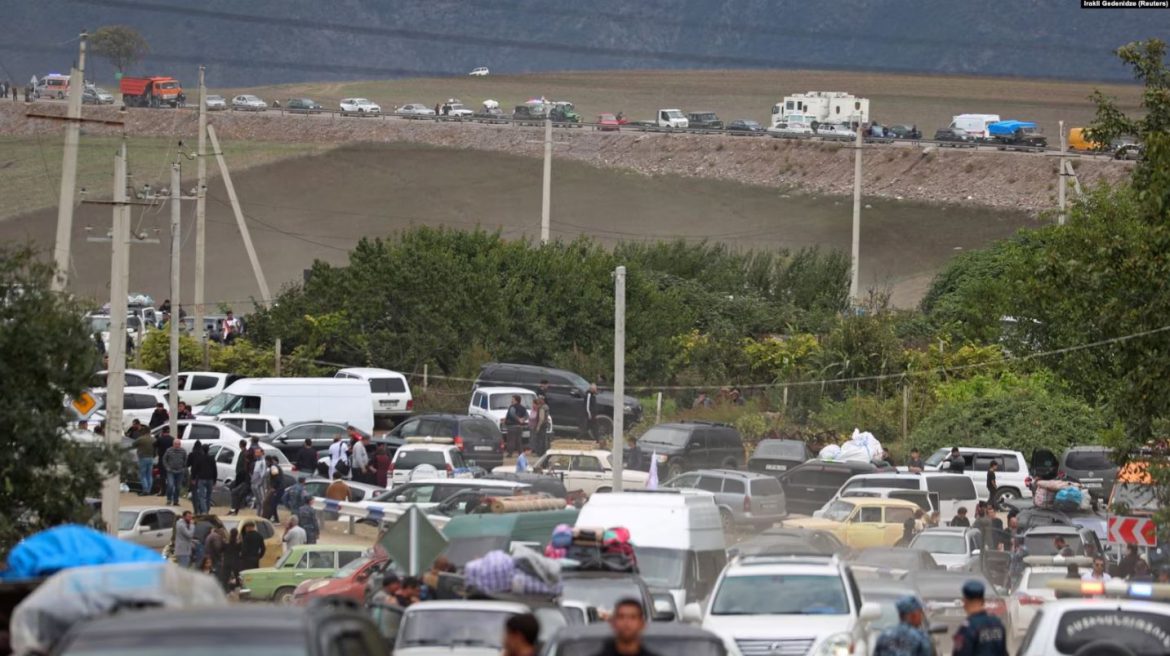The UK government is under fire following revelations that officials seemingly urged British businesses to assist in rebuilding areas occupied by Azerbaijan shortly after the state’s military takeover of Artsakh (Nagorno-Karabakh) forced over 100,000 ethnic Armenians to flee the region.
In November, representatives from the UK Foreign Office and the business department convened an online meeting with British business leaders, encouraging them to seize the “great opportunity” to support Azerbaijan President Ilham Aliyev’s rebuilding efforts.
This meeting occurred just six weeks after Azerbaijan’s military captured the historically Armenian Artsakh (Nagorno-Karabakh) region, resulting in an estimated 120,000 ethnic Armenians seeking refuge in neighboring Armenia.
Amid accusations of “ethnic cleansing” by Azerbaijan, the UK government initially condemned the “unacceptable use of force” by the Aliyev regime in Nagorno-Karabakh, warning that it jeopardized efforts for a peaceful resolution in the region.
However, a recording of the online meeting, obtained by campaigners at Global Witness and shared with the Guardian, revealed a different narrative. In the recording, a senior UK government official touted the financial opportunities in the “huge western chunk of the country that needs to be rebuilt from the ground up,” referring to Azerbaijan’s plans to repopulate areas including Nagorno-Karabakh.
Critics, including Jonathan Noronha-Gant from Global Witness, expressed outrage, denouncing the UK government’s characterization of Azerbaijan’s actions as a “great opportunity.” They questioned the officials’ understanding of the situation and criticized their focus on economic interests over humanitarian concerns.
Despite the UK government’s defense, claiming that discussions of reconstruction referred to potential future development in new towns for displaced individuals, skepticism remains. With Azerbaijan’s significant energy resources, including ownership of one of the world’s largest gasfields, questions arise about the true motivations behind the UK’s engagement.
Moreover, concerns have been raised about British oil company BP’s involvement in Azerbaijan’s projects, including plans to construct a solar farm in the “liberated lands” near Jabrayil. Critics warn that such investments indirectly support Azerbaijan’s military aggression against ethnic Armenians and call on BP to reconsider its stance.
As scrutiny mounts, both the UK government and BP find themselves embroiled in controversy, prompting calls for greater accountability and transparency in their dealings with Azerbaijan.




